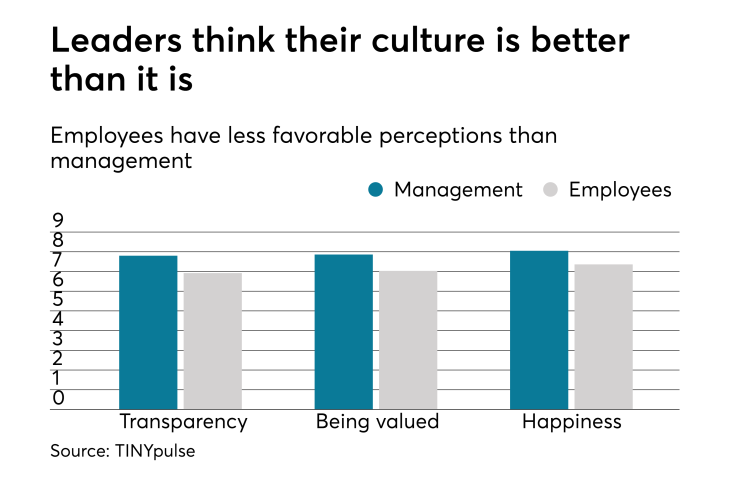With the increasing commoditization of employee benefits, how can companies in tight labor markets win the war on talent? At least one brokerage known for pushing the envelope believes it has the answer.
Arrow Benefits Group’s HR division is rolling out Culture Insights, which develops a personalized plan for employers to operate at their highest potential from six key angles. They include corporate purpose, mission, values, culture, HR and employee benefits. The program, which doesn’t have any paid customers yet, was inspired by a 2016 tour of Zappos.com by Andrew McNeil, an adviser with Arrow Benefits Group. Another source of motivation was a survey the firm did of millennials, Gen-Xers and baby boomers.
“People want to work for a place where they feel valued and are aligned with the mission and purpose of that organization,” he explains, regardless of their age or industry. “They don’t just want a paycheck.”

With guaranteed issue a centerpiece of the Affordable Care Act, workers need more than great benefits to retain them. Employees “are staying in their jobs for a shorter amount of time," McNeil says, adding that while company culture is a hot topic, it’s largely not being viewed as an employee benefit or something that should be integrated with benefits.
“This is a very interesting initiative in that direction because it’s a holistic approach to a number of very critical aspects of a corporation or business,” Griswold says of the Culture Insights program, calling it an innovative and forward-thinking approach. “The idea of your benefits adviser helping structure your corporate purpose, mission, etc., is a tremendous value because nobody else is going to help you.”
The issue is so significant that it can actually complicate new-company growth. For example, any honeymoon period that startups enjoy with their employees invariably will head south if corporate culture isn’t strongly valued. Of more than 100 early stage ventures examined, 70% were more likely to report higher turnover rates if their founders scored the importance of culture lower than the top spot on a 10-point scale.
Also see: “
The finding was featured in a recent Harvard Business Journal article co-authored by David Niu, CEO of TINYpulse, and Mark Roberge, chief revenue officer of the marketing firm who also lectures at Harvard Business School.
Many “cultural chasm” difficulties that were spotted in the third to fourth year of a startup rebounded significantly in the fifth and six year, with management transparency driving employee happiness more than benefits or work-life balance.
Money matters
However, there are skeptics who doubt the firepower of culture’s impact on the workforce relative to the traditional underpinnings of HR and benefits. “In the end, people care about pay, and they end up with their own personal interest,” says Joe Markland, president of HR Technology Advisors, LLC.
He recalls conducting an employee survey several years ago showing money and time, respectively, scoring highest with everything else a distant third. “If someone’s living paycheck to paycheck, then money is all that matters,” Markland believes.
His sense is that casting attention on the strategic value of improving corporate culture amounts to “repackaging” old ideas as opposed to breaking new ground. Moreover, he points out that Zappos, Google and other firms known for pampering their employees are rare. “The perception is everyone has got ping-pong tables and free lunch,” he says. “The average employer is not living that way.”
But McNeil says many smaller employers, while recognizing they don’t have the wherewithal of Silicon Valley darlings, believe this approach still makes sense to them. “From a benefits landscape, it’s just a different way to go in a different door, and you have a completely different message than anybody else,” he adds. Since benefits are delivered off the shelf in many of these firms, a deeper focus on culture and other intangibles can serve as a key differentiator.
There’s also a larger purpose behind the Culture Insights program. In all his email correspondence, McNeil now includes the following philosophical statement: “We believe we can build a stronger community by building stronger employers. Stronger employers translate into a stronger local economy and happier, more productive citizens.”





